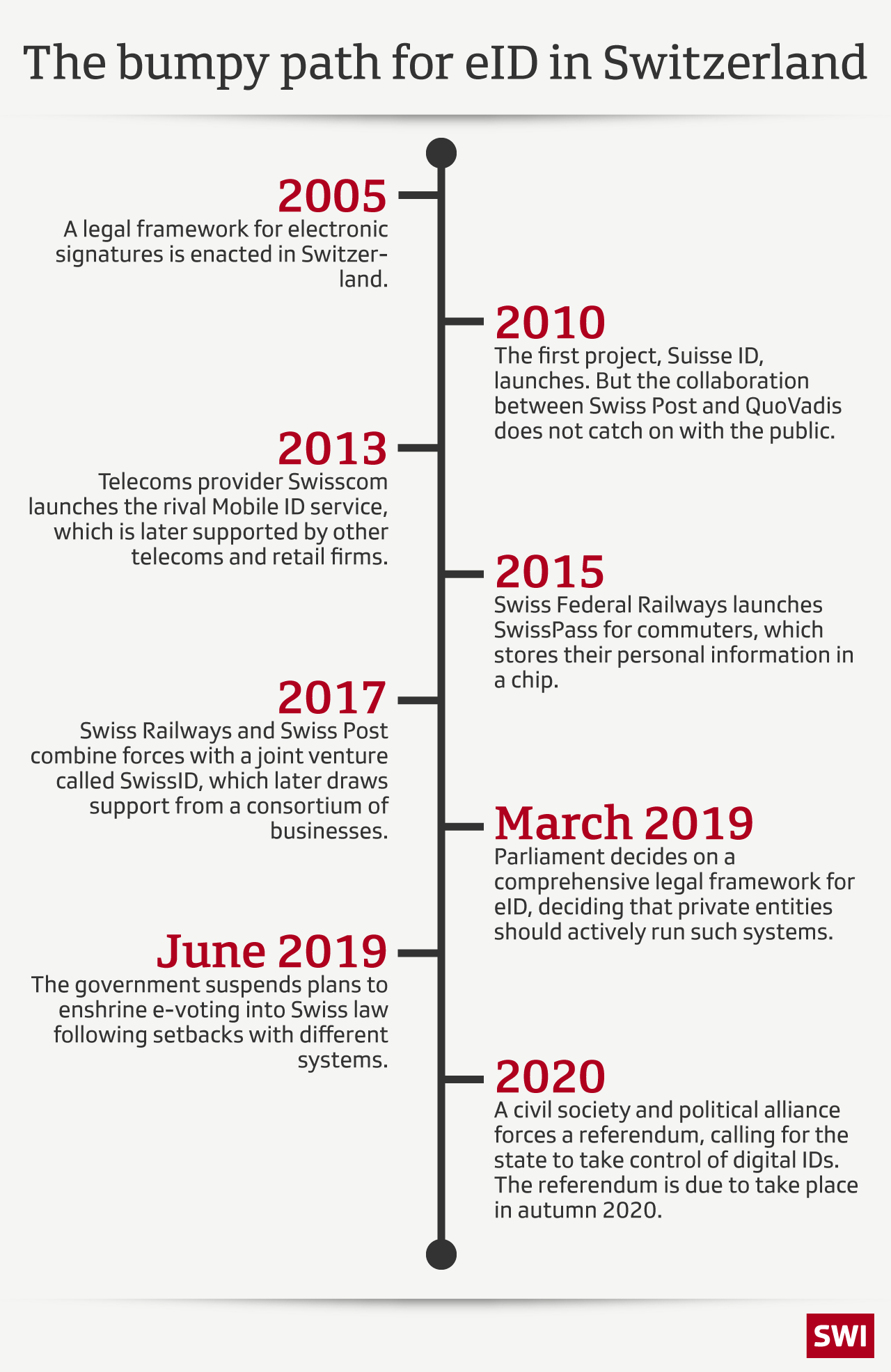
Swiss passport printer meets digital ID challenge head on

A 500-year-old company that has a monopoly on producing Swiss money, passports and driving licenses is betting big on the future of digital ID. Orell Füssli has taken a stake in a firm that specialises in electronic ID systems as part of a broader plan to establish a Swiss hub for digital identity services.
Introducing digital identities in Switzerland has been a long and sometimes fractious process – which still isn’t finished. This autumn, a popular vote will decide on a motion to throw out Switzerland’s strategy of allowing private companies to design and run eID systems.
Come what may in that vote, Orell Füssli CEO Daniel Link is convinced that digital identity will play an increasingly important role in society. This will affect everything from voting, using government services and opening a bank account to buying alcohol in shops and issuing university diplomas.
Link is also determined that his company will not experience a “Kodak moment” of failing to recognise the potential of new technology until it is too late. Printing secure documents accounted for CHF101 million of the company’s CHF237 million ($245 million) revenues last year.
“Physical money and documentation will not disappear overnight, but they are also going digital,” he told swissinfo.ch. “We have a three to five-year strategy to position ourselves for this development.”
In March, Orell Füssli took a stake in ProcivisExternal link, a young Swiss company that has already developed an e-government strategy for the canton of Schaffhausen. The size of the “strategic investment” has not been revealed, but it comes with two seats on the Procivis board.
Security and know-how
This is a win-win situation, according to Link. Procivis has the technical expertise while Orell Füssli brings the government stamp of approval – both in Switzerland and other countries in Africa, Asia and South America where it is entrusted with printing money and official documents.
“Printing passports and IDs requires certification that your IT, printing and data storage systems are secure. We even have to show that we run the right background checks before employing new staff,” said Link. “New players will have to go through a long process to obtain our levels of certification.”
The plan is to build an “ecosystem” around the Orell Füssli/Procivis marriage that will provide a “one-stop shop” of digital identity services for central banks, governments and companies within the next five years. This would combine technology, data and security expertise with the technical know-how of how to design and integrate eID into the likes of government services or payments systems.
Link believes that Switzerland’s neutrality and data security infrastructure could also boost prospects of the country becoming a leading digital identity hub. “We don’t want to leave it to Apple or Google to dominate the market,” he said.


In compliance with the JTI standards
More: SWI swissinfo.ch certified by the Journalism Trust Initiative




























You can find an overview of ongoing debates with our journalists here . Please join us!
If you want to start a conversation about a topic raised in this article or want to report factual errors, email us at english@swissinfo.ch.